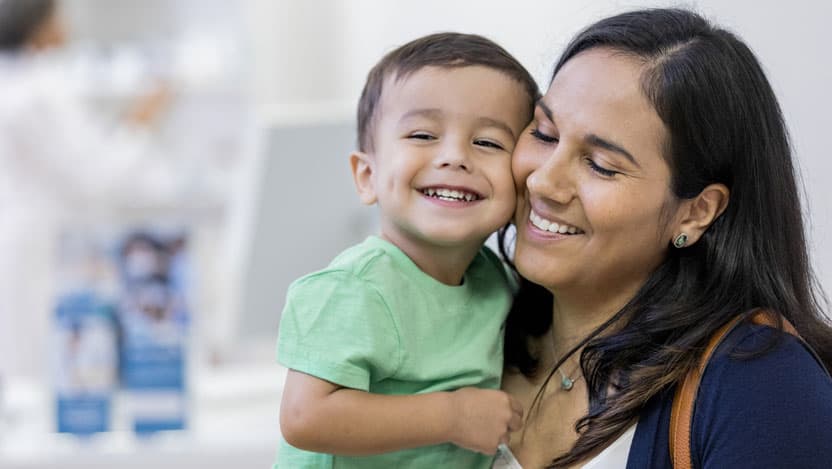Are childhood cancers different? Understanding the immune response to tumors in pediatric neuroblastoma

In patients, a positive response to immunotherapies, a type of medical treatment that helps your body fight cancer, is linked to the immune response to the tumor. Immunotherapy has become a standard treatment across many cancer types, but little is known about the immune response to tumors in pediatric patients, and how it differs from adults.
In a recent study published in the University of Chicago Medicine Comprehensive Cancer Center, aimed to find out how the immune systems of children with a type of cancer called neuroblastoma respond to tumors. The answer to this question could help guide the treatment of pediatric patients.
To ask this question, the researchers examined hundreds of past cases of childhood neuroblastoma. They did a genetic analysis of tumors to gather information about the immune response in each patient. Then they looked at how this data related to whether the patients survived cancer.
The genetic analysis of tumors gave the researchers information about the immune cell population in the tumor and told them how the immune cells were responding. Their results uncovered dramatically different immune profiles in tumors from different patients and showed that a strong immune response was tied to increased survival from neuroblastoma.
New approaches may help us to improve treatment options for children with relapsed or difficult-to-treat neuroblastoma.
The research team, led by Ami Desai, MD, Assistant Professor of Pediatrics at UChicago Medicine, found that patients with tumors with a “T cell-inflamed” profile were more likely to survive. Tumors with this profile had high levels of cytotoxic T cells – the immune cells known for their ability to kill tumor cells.
Their analysis also showed that tumors varied in their amount of “neoantigens,” tumor-specific markers that allow T cells to better target the tumor. Patients with tumors high in neoantigens were also more likely to survive.
Overall, children treated for high-risk neuroblastoma had better survival if their tumors were T cell-inflamed and high in neoantigens.
“New approaches may help us to improve treatment options for children with relapsed or difficult-to-treat neuroblastoma,” said Desai. “The correlation of improved survival of children with certain immune markers shows us that this is a critical area of investigation, with the potential to expand therapeutic options.”
Susan Cohn, MD, Professor of Pediatrics at UChicago Medicine and co-author of the study, explained that the data suggests crosstalk between tumor cells and immune cells in the microenvironment which influence response to therapy. Cohn added, “Future studies investigating the genetic profiles of tumor tissue following treatment with immunotherapies may allow us to use these profiles as biomarkers to inform treatment decisions.”
A deeper understanding of the mechanisms that drive the presence of T cells and neoantigens in neuroblastoma tumors could provide insight for the development of new immunotherapies to increase the number of T cells in tumors and improve anti-tumor immune responses in patients with neuroblastoma.
Neuroblastoma is a pediatric cancer that usually affects children under five years old. It forms from immature nerve cells and usually starts in the adrenal glands. Although neuroblastoma is rare, for high-risk neuroblastoma, only 50% of patients survive after 5 years. UChicago Medicine experts are working to understand this high-risk cancer and combat it using advanced treatments.
This research has led to an improved understanding of the connection between the immune response to tumors and survival in patients with neuroblastoma. The study indicates that for children with high-risk neuroblastoma, immune cells play an important role in determining response to therapy and outcome.
The study, “Immunogenomic determinants of tumor microenvironment correlate with superior survival in high-risk neuroblastoma” was supported by the National Institutes of Health, the US Department of Defense, non-profit organizations, and other donations.
Additional authors include Kyle Hernandez, Yuanyuan Zha, Peter Pytel, Thomas Gajewski, and Samuel Volchenboum from the University of Chicago; Riyue Bao and Jason Luke from the Hillman Cancer Center of the University of Pittsburgh; and Stephanie Spranger from the Koch Institute for Integrative Cancer Research at MIT.

Ami V. Desai, MD, MSCE
Ami Desai, MD, provides dedicated, compassionate care to children who have been diagnosed with cancer and blood diseases, with a focus on solid tumors such as neuroblastoma and sarcomas. Dr. Desai has a particular interest in investigating and developing novel treatments for childhood cancers.
View Dr. Desai's physician profile
Susan L. Cohn, MD
Susan L. Cohn, MD, is a highly respected expert in pediatric cancers and blood diseases. She is a leading authority on neuroblastoma, a cancer of nerve cells, and the most common type of cancer found in infants. She serves as chief of the Section of Pediatric Hematology/Oncology.
Read Dr. Cohn's physician profile